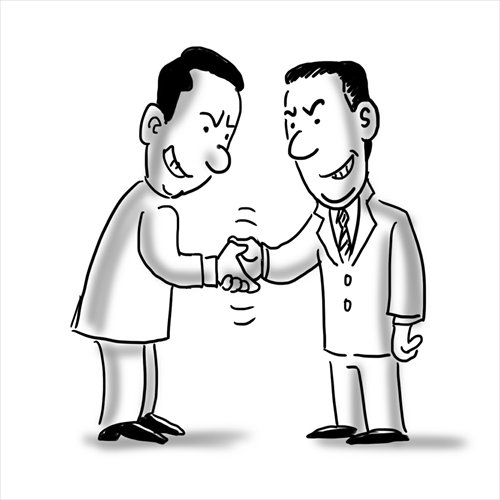Tokyo looks to Manila to strengthen pivot to South China Sea

Illustration: Shen Lan/GT
The Japanese Emperor Akihito and his wife Empress Michiko embarked on a five-day state visit to the Philippines on Tuesday. The historic visit, which is Akihito's first official trip to Manila as Japanese emperor, comes as the two nations commemorate the 60th anniversary of the establishment of diplomatic ties.
Although Japan's Emperor is the symbol of the State and of the unity of the people, he has little political power. Akihito's visit, arranged by the government, reflects Japanese Prime Minister Shinzo Abe's desire to forge an intimate relationship with Manila. Undoubtedly, countering China is one of his major purposes in moving closer to the Philippines.
Tokyo has long been eager to build a strategic fulcrum in the South China Sea. A closer relationship with Southeast Asian nations that have territorial disputes with Beijing will make Tokyo's aspirations easier to be realized.
Tokyo intends to take advantage of the South China Sea disputes to cause trouble for Beijing. Abe's government expects Manila and Hanoi to be its two pivots in the South China Sea to contain Beijing. Thus, Japan has offered substantial economic and military aid to the Philippines and Vietnam in exchange for their strategic support.
In addition, coveting more geopolitical benefits, Japan has been actively attempting to build an alliance with maritime countries, for instance, Australia and India. Although the Philippines is relatively weak compared with other maritime nations, it is still an important part of the alliance.
Akihito's Manila visit has been hailed by Japanese media as a sign of deepening ties of Japan and the Philippines. However, it's noticeable that Manila and Tokyo have disputes over historical issues such as "comfort women."
Japan and South Korea signed a landmark agreement to "finally and irreversibly" resolve the comfort women issue at the end of last year. There are also hopes in the Philippines to strike a similar deal with Japan despite the fact that so far, the Philippine government has made very little effort to push forward the issue.
Some Philippine citizens protested and demanded Japan to apologize for the WWII victims on Tuesday during Akihito's visit, but their voices have been disregarded by the government. They are not powerful enough to overturn the overall upward trend of Tokyo-Manila relationship.
Given its relatively weak status in the South China Sea disputes, the Philippines intends to rely on the US and Japan to counter China. Tokyo has been actively answering Manila's call. The two nations carried out joint military exercises in the region last year.
In addition, the Philippines has reportedly welcomed Japan's self-defense forces (SDF) into the region. The negotiations over allowing the SDF to enter into Philippine bases have been held. The two sides are expected to have more military cooperation this year.
Facing closer Japan-Philippines relationship, China should improve its national strength to counter any potential provocative actions.
The Chinese side firmly safeguards its vital interests in security and defense. At the current stage, strengthening its economy is one of the most urgent tasks for Beijing. Developing military clout alone is not enough. A stable and prosperous economy is a prerequisite for increased international influence.
The author is a professor at China Foreign Affairs University. opinion@globaltimes.com.cn